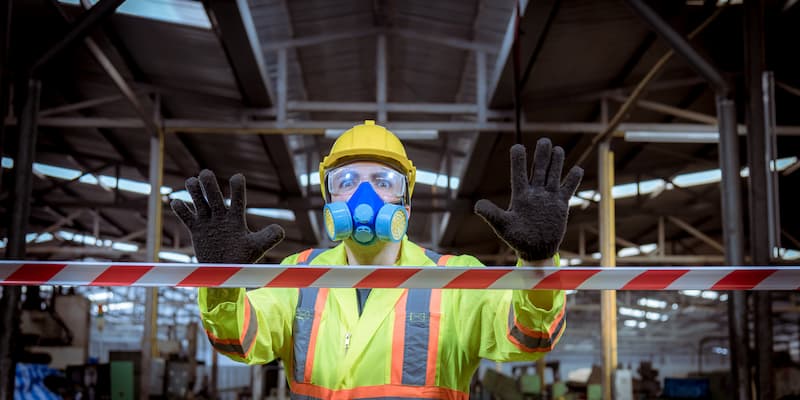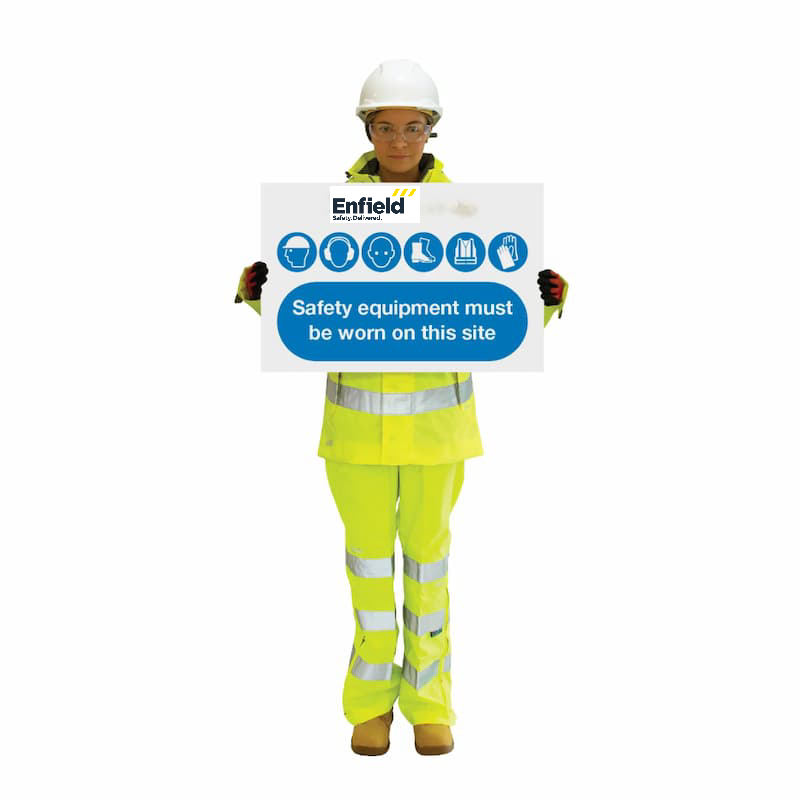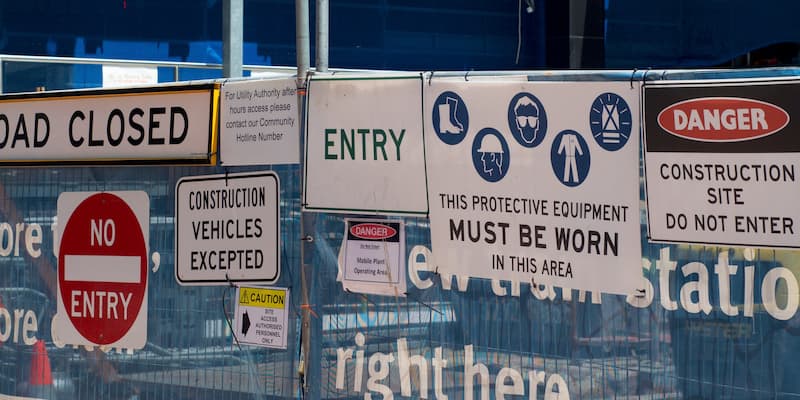
By Mark Smith 19/09/2024
Under: PPE and WorkwearYour exclusive guide to the best PPE for construction
What is personal protective equipment?
Personal protective equipment (PPE) is the gear that workers wear. It helps reduce the risk of serious injuries or health problems at work. In a construction environment, these risks can arise from various sources, including:
- excessive noise from machinery,
- exposure to dust,
- dangers from sharp objects or materials on site,
- movement of vehicles on the site,
- risk of electrical shock,
- hazardous chemicals,
- severe weather conditions.
Why is PPE so important?
PPE is very important in every industry. However, it is even more essential in construction because of the many physical dangers. When workers wear PPE, they significantly reduce their chances of getting injured on the job. Construction companies must give their employees the right PPE for their jobs. PPE should also be checked regularly by the employer and the worker who wears it. It is important to set clear rules on site so all workers use their PPE consistently and correctly.
Is PPE a legal requirement in the UK?
Yes, PPE is mandated by law in the United Kingdom, specifically under The Personal Protective Equipment at Work Regulations 1992 and The Health and Safety at Work Act 1974. According to these regulations, employers are required to conduct a risk assessment to pinpoint any potential hazards in the workplace. If it’s determined that PPE is necessary, employers must supply the appropriate equipment at no cost to the employees. Additionally, they are responsible for providing information, training, and guidance on the correct usage of PPE. The PPE Regulations 2022 (Amendment) broadened the responsibilities of employers to include "limb (b) workers." These are individuals who may have a more casual or freelance arrangement with the employer but still operate under their supervision. Now, employers must ensure that both employees and "limb (b) workers" are equipped with the necessary PPE to address the risks they encounter on the job.
What is the standard 5-point PPE check?
As a minimum, employers should implement a 5-point PPE system on site. A standard 5-point PPE check includes a:
- Hard Hat or safety helmet to protect the head,
- High Visibility Vest to enhance visibility,
- Protective work boots to protect the feet,
- Protective work gloves to protect the hands,
- Safety Goggles or proactive glasses to protect the eyes.
6-point PPE is recommended for construction sites
In addition to the standard 5-point head and eye protection, high-visibility work gear, and protective hand and footwear, it is advisable to implement a 6-point PPE system on construction sites. This 6-point system also includes respiratory protection, safeguarding workers' lungs from hazardous dust and chemicals.

How Often Should PPE Be Changed?
PPE must be replaced whenever it shows signs of damage, such as tears, cracks, frayed edges, or discolouration, or if it has reached its expiration date. Certain types of PPE are designed for single use only, referred to as critical PPE. Once PPE is damaged, it should never be reused. It's essential to conduct a thorough inspection of PPE every day before using it.
Key considerations when selecting PPE
To ensure that personal protection is as effective as possible while being worn, employers should consider the following factors before assigning a worker with PPE:
- It’s essential that PPE is the right size, fits well, and is comfortable to wear. There are various workwear options designed specifically for men and women to ensure the best possible fit.
- Recognise any potential physical and exposure hazards. For instance, when working at heights, additional equipment will be necessary compared to ground-level tasks.
- The PPE must be appropriate for the specific type of work. For example, someone working outdoors for extended periods will need a durable, waterproof, and high-visibility coat along with sturdy work boots.
- If multiple pieces of PPE are worn, they should be compatible with one another. For instance, when wearing safety glasses, an employer needs to ensure that they do not interfere with the seal of a respirator, which could lead to air leaks.
- The equipment must comply with UK industry standards, such as AS/NZS 1715 for Respiratory Protective Equipment (RPE).
- Any new risks that may arise from wearing PPE should be identified and managed appropriately. For example, if a construction worker who typically works during the day is assigned to night shifts, they should be provided with additional high-visibility and illuminating PPE.
Specialist PPE Suppliers & Safety Supplies
Enfield Safety Supplies are leading UK providers of PPE, including workwear, janitorial and hygiene products, traffic management solutions, fire safety products, and safety signage.
As experts in PPE, we offer a wide selection of items that include safety helmets, high-visibility clothing, ear protection, protective footwear, safety gloves, safety eyewear, respiratory gear, branded workwear, and much more. All of our high-quality PPE can be branded in-house via our embroidery and heat transfer service.
For nearly 50 years, we've been a trusted partner for various industries, particularly construction, supplying quality PPE products to thousands of construction companies and tradespeople. Our mission is to deliver the right product, on time at the right price, to make you safer!
Our expert team excels in product sourcing! We have specialist PPE items in stock and available for same or next-day delivery. Reach out to us today and discover how we can provide you with the best PPE and safety products at the best price.

.jpg)
